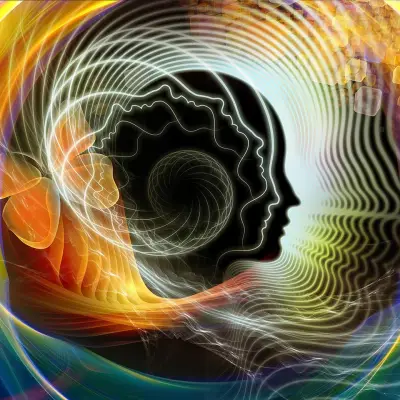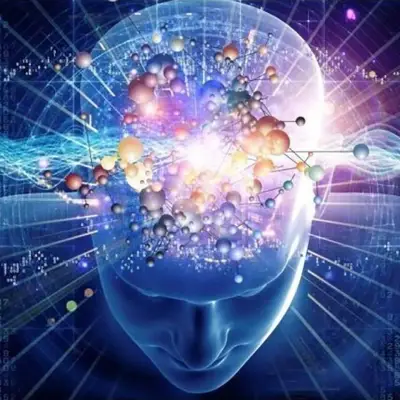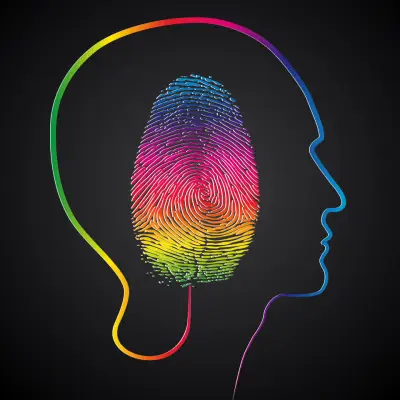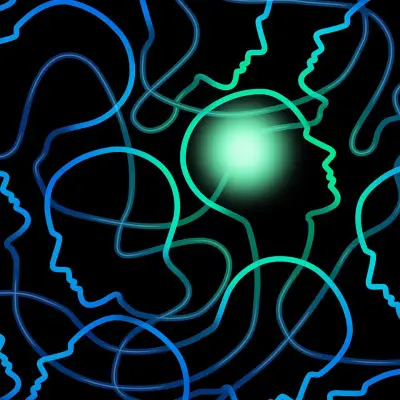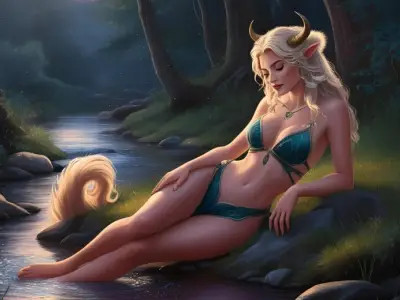If you’re curious about the spectrum of human personalities, you’ve probably heard of the 12 Jungian Archetypes. In this article, we’ll uncover their traits, strengths and weaknesses, and journey deeper into the human psyche.
The idea of "archetypes" traces back to ancient Greece, where the term meant “original pattern” or “primordial model”. Swiss psychiatrist Carl Jung further leveraged this concept within his influential theories concerning the human psyche and the depths of the collective unconscious.
Within our shared consciousness, Jung uncovered 12 fundamental archetypes that reflect core aspects of the human experience. Jung revealed that each of us channels these 12 archetypes to varying degrees. While one may shape our dominant personality traits, others still reside within us, guiding our behaviours, relationships and personal narratives on subtle levels.
So, what are these 12 archetypes and which do you resonate with?
Jump to:
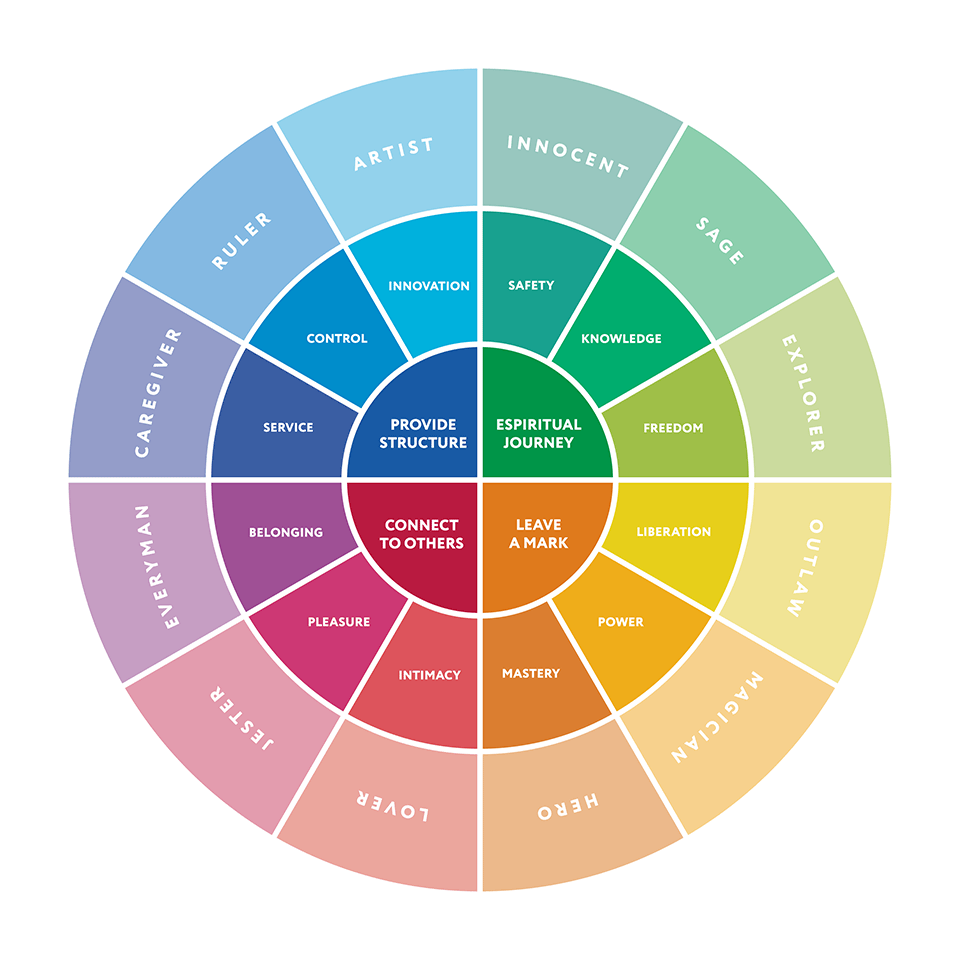
1. The Innocent
Childlike wonder - Optimism - Trusting - Naive
The Innocent archetype embodies purity, simplicity and an unwavering belief in the world's goodness. It views life with optimism and a childlike wonder, and often seeks out feelings of safety.
Strengths - Innocents spread light wherever they go. Their pure-heartedness radiates positivity that can lift the spirit of others. They also have a vivid imagination and a knack for finding beauty in ordinary moments and objects. With their distaste for conflict and eye for harmony, Innocents frequently mediate disputes and restore group balance.
Weaknesses - As they are very trusting, Innocents are susceptible to manipulation and deception. They avoid confrontation completely and usually shy away from difficult conversations, which hinders their personal growth.
Examples of the Innocent
- Characters like Alice from "Alice's Adventures in Wonderland" by Lewis Carroll.
- Forrest Gump from "Forrest Gump" (played by Tom Hanks).
Recommended for you!
Best Sellers2. The Everyman
Relatable - Empathic - Adaptable
As the name suggests, the Everyman represents the ordinary person. They are down-to-earth and relatable. This archetype reflects the common human experience - they lead a typical, everyday life and understand the struggles and joys of ordinary, normal people.
Strengths - As the Everyman is relatable, they can quite easily connect with others and build friendships. Their empathic nature helps with the process of connecting, and their caring nature allows them to understand and respond to the needs of others.
Weaknesses - Those with pronounced Everyman traits are quite adaptable and can get along with many personalities. However, their average qualities make it difficult for them to stand out. Although it’s a good quality to be content with an ordinary life, being too content and having limited aspirations could prevent them from living a more exciting life and having new experiences.
Examples of the Everyman
- Characters like Bilbo Baggins from J.R.R. Tolkien's "The Hobbit".
- Tom Hank’s character Chuck Noland in “Cast Away”.
3. The Hero
Courageous - Determined - Moral Compass
The Hero archetype represents courage, strength and nobility. Heroes are often called upon to embark on adventures, leaving their ordinary worlds to face challenges and transformation and return with newfound wisdom.
Strengths - The Hero’s courage and resilience can be inspiring for others. How they remain strong during challenging situations can motivate others to find their own strength and persevere in their struggles.
Weaknesses - Due to their many achievements, it’s more common for Heroes to be overconfident and arrogant - traits that can sever relationships and lead to their downfall. The Hero’s journey can also isolate them, and as a result, they are likely to struggle with loneliness or the burden of their responsibilities.
Examples of the Hero
- Harry Potter from J.K. Rowling's series.
- Frodo Baggins from J.R.R. Tolkien's "The Lord of the Rings".
- Luke Skywalker from the "Star Wars" franchise.
4. The Caregiver
Nurturing - Selfless - Compassionate
Caregivers prioritise the well-being of others and are driven by a deep desire to provide support and care. They have a strong instinct to protect and provide comfort to those who are vulnerable.
Strengths - A Caregiver’s empathy and compassion creates a safe and nurturing environment for others so they can heal and grow. Their ability to emphasise provides physical care and emotional and spiritual support. They have a selfless nature and will often prioritise the needs of others over their own.
Weaknesses - Selflessness can slowly become self-neglect for Caregivers, as their constant desire to assist others can lead them to neglect their emotional and physical needs. Constant exposure to the suffering and needs of others can take an emotional toll on Caregivers, especially if they struggle to set healthy boundaries and say “no” in their caregiving roles.
Examples of the Caregiver
- Figures like Mother Teresa dedicated her life to caring for the sick.
- Nurses and parents.
5. The Explorer
Independent - Curious - Resourceful
Explorers embody curiosity and adventure. They seek new horizons and are continuously pushing boundaries externally and within themselves.
Strengths - Explorers are extremely independent and value the freedom that they have. Because their chosen path is usually unknown, they possess courage in the face of the unknown and approach new experiences with an open mind and heart. Using their creativity and wit, they can adapt easily to changing circumstances.
Weaknesses - The constant pursuit of adventure can sometimes lead to restlessness and a lack of contentment in the present moment. This restlessness can lead to more risk-taking, sometimes even without considering the consequences. An Explorer’s independence and desire to move from place to place can also make it difficult for them to form deeper relationships and connections, leading to isolation.
Examples of the Explorer
- Amelia Earhart - The first female aviator to fly solo across the Atlantic Ocean.
- Italian explorer and navigator Christopher Columbus.
6. The Rebel
Passionate - Nonconforming - Courageous
The Rebel archetype personifies defiance, nonconformity and a desire for change. Rebels challenge the established norms and conventions, usually pursuing some form of justice or freedom.
Strengths - Rebels play a huge role in driving societal and cultural change and are needed to challenge outdated systems and practices. Without them, society would not progress as it should. Their willingness to question the norm can inspire those who mindlessly follow authority and encourage them to advocate for their rights and stand up for their beliefs.
Weaknesses - Unfortunately, the defiance of Rebels can lead to conflict and resistance from other groups, leaving them to feel like outsiders. They also exhibit more recklessness - acting impulsively and disregarding any consequences - which could get them into trouble.
Examples of the Rebel
- Rosa Parks, known as the "mother of the civil rights movement".
- Nelson Mandela, who had a lifelong fight against the apartheid in South Africa.
7. The Lover
Sensual - Emotional - Passionate
The Lover is about passion, desire, and connecting with others and the world. It represents the pursuit of pleasure, intimacy, and a deep appreciation for beauty in all its forms!
Strengths - Lovers can forge meaningful relationships and bonds that bring them fulfilment via their emotional depth. They value intimacy and vulnerability, which is a trait that many others look for in a relationship. They also have a real appreciation for the world’s beauty and are often successful when pursuing an artistic goal.
Weaknesses - Lovers wear their hearts on their sleeves, making them more vulnerable to heartbreak. Because they act impulsively based on their feelings, this can sometimes lead to hasty decisions and regrets.
Examples of the Lover
- Gustav Klimt's painting "The Kiss" captures the sensuality and intimacy of the Lover archetype.
- Eros and Psyche, from Greek mythology, symbolise the union of love and the human soul.
8. The Creator
Innovative - Creative - Independent
The Creator archetype expresses imagination and innovation. Creators naturally drive to bring something new and unique to the world using creative expression.
Strengths - A Creator’s imagination has no limits. Their unique concepts and groundbreaking developments often inspire others, sparking new perspectives and encouraging them to think outside the box. Their contributions leave a lasting legacy in their field and are a gift to society.
Weaknesses - With this extreme desire to create, there is also a need for perfection. Creators can become easily critical of their work due to their pursuit of perfection. Their intense focus on their creative projects means more time away from their friends and family, and this constant prioritisation of work can negatively impact their relationships.
Examples of the Creator
- Steve Jobs: Co-founder of Apple Inc.
- Marie Curie, a pioneering scientist and two-time Nobel Prize winner.
9. The Jester
Playful - Funny - Light-hearted
The Jester embodies humour and a more playful approach to life. They are masters of wit and like to use humour to entertain and lighten the mood.
Strengths - Jesters can make others laugh even in challenging situations - offering humour to relieve stress and cope with life’s difficulties. Their playful approach to life can encourage people to see situations from a different and lighter perspective. Humour brings people together, and Jesters are the instruments for doing that.
Weaknesses - With humour, there is always the risk of insensitivity - Jesters may unintentionally offend others with their humour, especially if it crosses a boundary. The emotional depth of a Jester may also be underestimated by others, who could believe that they are masking things with humour.
Examples of the Jester
- Legendary silent film comedian, Charlie Chaplin and his iconic character, “The Tramp”.
- UK comedy group, Monty Python.
10. The Sage
Wise - Contemplative - Natural mentors
The Sage archetype represents wisdom and knowledge. Sages are seekers of truth and enlightenment and offer guidance and insight to those who seek their wisdom.
Strengths - Through experience and study, Sages have preserved collective wisdom that allows them to offer valuable guidance and counsel to others who are going through troubled times. They are also excellent problem solvers who can guide people through tough dilemmas by thinking critically and asking intelligent questions.
Weaknesses - Their introspective natures can lead to isolation or difficulty connecting with others on an emotional level. They also tend to over-analyse situations and, rather than arriving at a decision, they can easily become lost in their thoughts.
Examples of the Sage
- Ancient Greek philosopher, Socrates, who encouraged critical thinking and self-examination.
- Mahatma Gandhi and his wisdom on social justice and peaceful protesting.
11. The Magician
Skilled - Knowledgeable - Empowered
The Magician archetype focuses on transformation and the ability to create change through knowledge and power. Magicians can harness unseen forces to transform themselves and the world around them.
Strengths - Because Magicians have the power to transform, they can empower themselves and others to overcome obstacles and achieve their desires. They are natural leaders and often guide others through change.
Weaknesses - Because Magicians possess deep knowledge and the ability to effect change, they may be tempted to use their skills for personal gain or to manipulate others. Mastering supernatural forces can sometimes lead to arrogance - they may overestimate their power, believing they are “invincible”. Magicians are also prone to losing touch with reality as they become absorbed by the endless possibilities of change.
Examples of the Magician
- In Hermeticism, Hermes Trismegistus is a legendary figure known as a master of alchemy, magic, and esoteric wisdom.
- In Arthurian legend, Merlin is a powerful magician who guides and transforms the destiny of King Arthur.
12. The Ruler
Responsible - Born leader - Visionary
The Ruler represents leadership and authority. Rulers are natural leaders who hold positions of power and responsibility with a general focus on maintaining order and ensuring the well-being of their people.
Strengths - A Ruler’s strengths lie in their ability to provide stability and order whilst inspiring loyalty amongst followers. Their leadership is usually a source of inspiration, uniting people towards a common goal. They are extremely responsible and are determined to make a positive difference in the world.
Weaknesses - Rulers can sometimes develop narcissistic traits, believing that authority is beyond question and critique. Additionally, their focus on maintaining stability may, at times, hinder their ability to adapt to changing circumstances and embrace innovation.
Examples of the Ruler
- Late Queen Elizabeth II, Queen of England. A ruler known for her intelligence and political acumen.
- Former Prime Minister of the UK, Winston Churchill.
If you're inspired to learn more about the Jungian archetypes, consider enrolling in our Jungian Archetypes Diploma Course, available for just £39 (save £110!), where you can embark on a transformative journey of self-discovery and personal growth!

